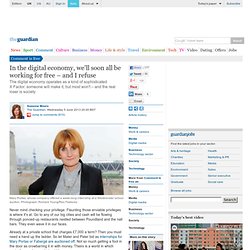

Fandom powered by Wikia. Assessment | Biopsychology | Comparative | Cognitive | Developmental | Language | Individual differences | Personality | Philosophy | Social |Methods | Statistics | Clinical | Educational | Industrial | Professional items | World psychology | Cognitive Psychology:Attention · Decision making · Learning · Judgement · Memory · Motivation · Perception · Reasoning · Thinking - Cognitive processesCognition - OutlineIndex Confirmation bias (or myside bias[1]) is a tendency for people to prefer information that confirms their preconceptions or hypotheses, independently of whether they are true.[2][3] People can reinforce their existing attitudes by selectively collecting new evidence, by interpreting evidence in a biased way or by selectively recalling information from memory.[4] Some psychologists use "confirmation bias" for any of these three cognitive biases, while others restrict the term to selective collection of evidence, using assimilation bias for biased interpretation.[5][2] Types Edit.

Dispatches - Undercover Mosque: The Return. Lineage lottery: the myth of social mobility - Features - Health & Families. According to a new book, The Son Also Rises, by academic Gregory Clark, our chances of getting on in life are largely down to what our family did 300 years ago.

Contrary to brighter estimates, which suggest that past prosperity or poverty can be erased in three to four generations, Clark reckons it takes 10 to 15. So, those who feel held back by their modest beginnings shouldn't look to their parents' salary for an explanation: that accounts for a mere 10 per cent variation in a person's status, whereas our long-term lineage accounts for a variance of between 50 and 60 per cent. What that means, in effect, is that if your family were shopkeepers 200 years ago, the likelihood is you may be, too. Clark arrived at his conclusion by using surnames to track changes in familial fortune. Was Clark surprised at his findings, implying as they do that capitalism has not led to a rapid, persistent mobility? Clark suggests that mobility in feudal England was not vastly different to today. In the digital economy, we'll soon all be working for free – and I refuse.
Mary Portas, whose company offered a week-long internship at a Westminster school auction.

Photograph: Richard Young/Rex Features Never mind checking your privilege. Flaunting those enviable privileges is where it's at. Go to any of our big cities and cash will be flowing through ponced-up restaurants nestled between Poundland and the nail bars. They even wave it in our faces. Already at a private school that charges £7,000 a term? Meanwhile, we have more than a million Neets in the country – young people not in work, education or training. At this point it is customary to blame the banksters. But it's not lovely being asked to work for free, whether you are 18 or 48. But this is about more than that. Governments play up the idea that a digital future creates jobs rather than eats them up. In an interview with Scott Timberg for Salon, Lanier gives a potent example: Kodak used to have "140,000 really good middle-class employees.
The implosion of the middle class produces instability.
Charity. World Economics.